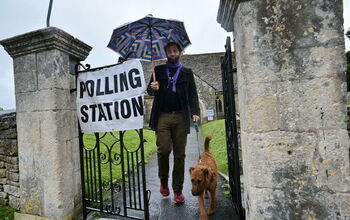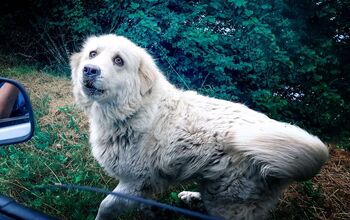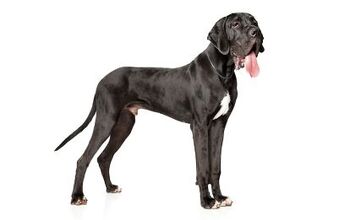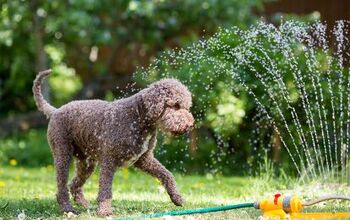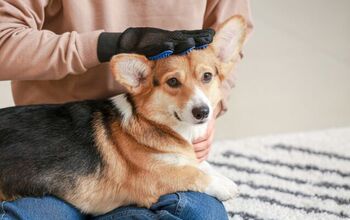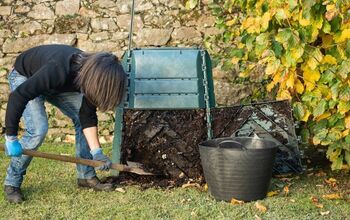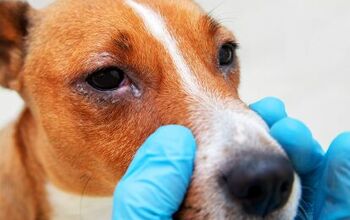Bordatella: Kennel Cough Symptoms And Treatments

Also referred to as Bordatella, kennel cough is the most common, and one of the most serious, upper respiratory infections in dogs. Not only is this disease common, but it is also highly contagious, especially if your dog has not been vaccinated. As a pet parent, you need to know the basics about kennel cough in dogs including the causes, symptoms, treatment options, and methods of prevention.
Related: Reverse Sneezing In Dogs
Kennel Cough Symptoms and Causes
There are several causes of kennel cough, also known as tracheobronchitis, but the two most common are the parainfluenza virus and mycoplasma. It is also thought that canine adenovirus type 2, canine herpes virus, and reovirus may also contribute to kennel cough. In many cases, the appearance of symptoms results from a combination of these causes. Parainfluenza virus typically results in mild symptoms that only last five or six days unless a secondary bacterial infection occurs. The most common bacteria seen in cases is Bordatella bronchiseptica and it typically causes kennel cough symptoms to manifest within two to 14 days of exposure.
Related: 7 Common Veterinary Treatments For Dog Allergies
The most common of the kennel cough symptoms is, of course, a dry hacking cough – in some cases, the cough is heavy enough to be followed by retching. Other kennel cough symptoms may include a watery discharge from the nose, lethargy, fever, loss of appetite, and pneumonia – only is the most serious of cases does kennel cough result in death. This is most commonly observed in puppies and in immunocompromised dogs. In mild cases of kennel cough, infected dogs typically continue to eat and behave normally.
Treatment Options
Kennel cough is typically diagnosed through the observation of symptoms and through a history of exposure to other dogs, often in a kennel or rescue facility. In order to identify the individual agents involved in the disease, bacterial cultures and other tests may be performed. Once the diagnosis has been made, there are several treatment options for kennel cough: medical treatment with antibiotics, cough suppressants, steroids, and aerosol therapy. In mild cases of the disease, cough suppressants and antibiotics are most common. For severe cases, antibiotics are often used, especially if the dog is showing signs of pneumonia or if he has stopped eating. In severe cases, steroids and cough suppressants are generally avoided because the dog may be at risk for immunosuppression.
Prevention Methods
Perhaps the most common and effective method for preventing kennel cough in dogs is vaccination. Many vets will agree, however, that the only way to truly prevent kennel cough is to avoid exposing your dog to other dogs. Unfortunately, vaccination does not entirely protect your dog from contracting the disease, but it may help to lessen its severity. Certain vaccines can be used on puppies as young as three weeks of age and the puppy will be protected within three to four days of the vaccine. It is important to realize, that after vaccination dogs are capable of shedding the virus for several days – it takes up to four days for a dog to be protected after receiving vaccination. Once a dog has been vaccinated, a yearly booster is recommended – if the dog will be in regular contact with other dogs, however, a booster every six months may be recommended.
Kennel cough is a highly contagious and often serious disease that can affect dogs of all ages. The best way to protect your dog is to learn all you can about the disease and to have him vaccinated according to your vet’s recommendations.

Kate Barrington is the loving owner of two cats (Bagel and Munchkin) and a noisy herd of guinea pigs. Having grown up with golden retrievers, Kate has a great deal of experience with dogs but labels herself a lover of all pets. Having received a Bachelor's degree in English, Kate has combined her love for pets and her passion for writing to create her own freelance writing business, specializing in the pet niche.
More by Kate Barrington





